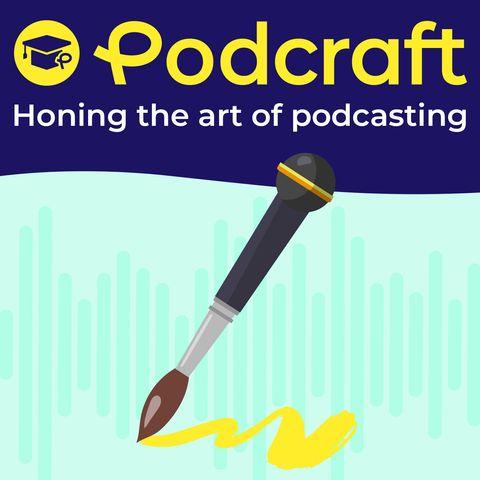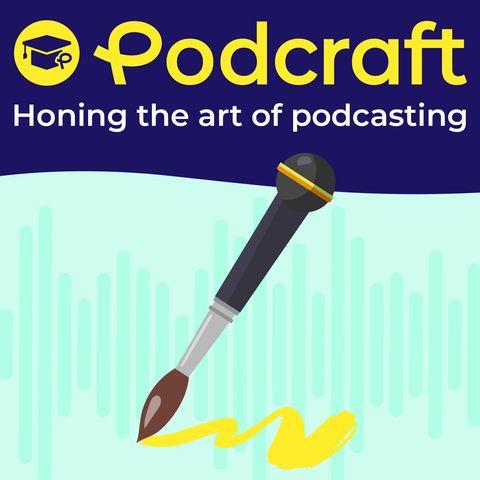
Podcast by Alitu via The Podcast Host

Podcast by Alitu via The Podcast Host

23 February 2026
Have you ever noticed that a podcast you follow hasn't put out an episode in months, only to find they're still actively publishing on YouTube?
In this episode, Colin’s away, so I’m joined by Jacob to unpack a shift we’re seeing more and more. Creators recording for YouTube and letting the audio feed fall away. Sometimes intentionally. Sometimes just because it feels easier.
We talk about why this is not really an audio versus video debate. It’s a distribution debate. When you remove open RSS and rely on a single platform, you change how people can consume your show. You also risk cutting off your most loyal listeners, the ones who want to listen while walking, driving, or working, not sit and watch.
From there, we dig into Apple’s latest move to support video more seriously inside Apple Podcasts. Instead of clunky separate feeds, Apple is rolling out HLS video streaming via hosting providers. We explore what that could mean for open podcasting, how it compares to Spotify’s walled garden approach, and whether pricing could become the real barrier for indie creators.
We also talk about pull-based content systems for curating your podcast or newsletter.
If information is infinite in 2026, curation becomes valuable. I share an idea for building a pull-based workflow that gathers relevant updates automatically, so you can filter and add your own perspective rather than spending hours manually searching. Jacob walks through practical ways to prototype this using AI projects and automation tools, without needing to code.
The episode of Podcraft is sponsored by Beamly, and is brought to you by Alitu and The Podcast Host
00:00
50:20

16 February 2026
Our indiepod legends have given us many insights, tips, and words of advice this season. They're speaking from positions of authority and experience, but they didn't get there overnight. On the final episode of Season 20, we'll dig into what they wish they'd known before they started and ask about some mistakes they see new podcasters make.
00:00
43:42

06 February 2026
On last week's episode of Podcraft, we agreed that sponsorship was broadly overrated for the average indie creator.
But... that doesn't mean it isn't the right fit for you.
Maybe you podcast within a specialist hobby, professional field, or enthusiast community.
In many niches, sponsorship fits naturally because you're talking about certain tools, products, or services anyway.
Getting paid for those endorsements can help support your work without any disruption to your content. It's only a matter of reaching out and asking.
But that's the tricky part. Does the person you speak to understand the power of audio? And do they want to make a split-second decision based on comparing your download numbers to the social media metrics of your average "influencer"?
On this quick episode of Podcraft, I run through what I learned after creating a 2026-proof media kit for my own hobby podcast. If you're even considering sponsorship, I think you'll get a lot from it...
Podcraft is brought to you by Alitu and The Podcast Host
00:00
09:19

02 February 2026
Which podcasting best practices are actually worth your time, and which ones are overhyped?
In this episode, we take a deliberately opinionated look at common podcasting advice, tools, and assumptions, and decide whether each one holds up in practice.
We also tackle a thoughtful listener question on how to relaunch a podcast with existing episodes. The answer outlines a practical two-week sprint focused on SEO, guest sharing, collaborations, email lists, and early momentum, without relying on social media.
Mentioned
Podcraft is brought to you by Alitu and The Podcast Host
00:00
48:34

26 January 2026
What will podcasting actually look like by the end of 2026, once the hype settles and habits stick?
In this episode, we make grounded predictions about where the medium is heading and what creators may want to do less of. We examine the growing pushback against video-first shows that neglect audio listeners, why audio-only content may regain strength, and how screen fatigue could reshape creator priorities.
We also look at the future of tools and platforms. Where AI editing genuinely saves time, where it risks flattening personality, and why rougher, more human solo content may become more valuable rather than less. We explore distribution too, including what might come next from Spotify, whether Apple Podcasts is likely to evolve, and why open RSS still matters even as video grows.
Finally, we wrap up by looking ahead. Which formats are likely to thrive, how monetisation and advertising may shift, and how creators can decide what is actually worth their time.
Podcraft is brought to you by Alitu and The Podcast Host
00:00
55:17

19 January 2026
Do you still need all the “must-do” podcasting advice that gets recycled every year, or has some of it quietly expired?
In this episode, we revisit a long list of podcasting essentials and ask one question of each: Does this still matter in 2026? We look at what still earns its place, what has changed, and what you can stop worrying about entirely.
The focus is on practical decisions, not trends. When consistency helps and when it gets in the way, why some advice was never essential to begin with, and how much effort makes sense depending on whether your show is a hobby, a growth project, or a business.
The thread throughout is simple. Understand why you are doing something, not just whether you have been told you should.
Do you still need...
Also mentioned
Podcraft is brought to you by Alitu and The Podcast Host
00:00
47:37